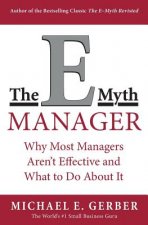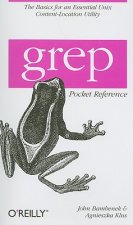
Kód: 33012108
Ownership and Inheritance in Sanskrit Jurisprudence
Autor Fleming, Christopher T. (Postdoctoral Fellow, Postdoctoral Fellow, University of Southern California)
Ownership and Inheritance in Sanskrit Jurisprudence provides an account of various theories of ownership (svatva) and inheritance (dāya) in Sanskrit jurisprudential literature (Dharmaśāstra). It examines the evolution of different ... celý popis
- Jazyk:
 Angličtina
Angličtina - Väzba: Pevná
- Počet strán: 270
Nakladateľ: Oxford University Press, 2020
- Viac informácií o knihe

Mohlo by sa vám tiež páčiť
-

In Praise of Shadows
7.96 € -27 % -

Baby Loves Coding!
8.17 € -20 % -

Folk of the Air Boxset
30.78 € -14 % -

Make Your Own Board Game: A Complete Guide to Designing, Building and Playing Your Own Tabletop Game
15.84 € -21 % -

The Wedding People
24.11 € -18 % -

E-Myth Manager
13.31 € -28 % -

Murdoch Mysteries - Except the Dying
10.29 € -28 % -

King Lear
10.29 € -28 % -

Passiflora
13.82 € -14 % -

William Blake vs the World
12.71 € -19 % -

grep Pocket Reference
18.97 € -26 % -

Music for the Masses
19.98 € -

Back to the Future: Magnetic Hoverboard
9.38 € -15 % -

Handbook of the International Law of Military Operations
91.74 €
Darčekový poukaz: Radosť zaručená
- Darujte poukaz v ľubovoľnej hodnote, a my sa postaráme o zvyšok.
- Poukaz sa vzťahuje na všetky produkty v našej ponuke.
- Elektronický poukaz si vytlačíte z e-mailu a môžete ho ihneď darovať.
- Platnosť poukazu je 12 mesiacov od dátumu vystavenia.
Viac informácií o knihe Ownership and Inheritance in Sanskrit Jurisprudence
Nákupom získate 308 bodov
 Anotácia knihy
Anotácia knihy
Ownership and Inheritance in Sanskrit Jurisprudence provides an account of various theories of ownership (svatva) and inheritance (dāya) in Sanskrit jurisprudential literature (Dharmaśāstra). It examines the evolution of different juridical models of inheritance—in which families held property in trusts or in tenancies-in-common—against the backdrop of related developments in the philosophical understanding of ownership in the Sanskrit text-traditions of hermeneutics (Mīmāṃsā) and logic (Nyāya) respectively. Christopher T. Fleming reconstructs medieval Sanskrit theories of property and traces the emergence of various competing schools of Sanskrit jurisprudence during the early modern period (roughly fifteenth-nineteenth centuries) in Bihar, Bengal, and Varanasi. Fleming attends to the ways in which ideas from these schools of jurisprudence shaped the codification of Anglo-Hindu personal law by administrators of the British East India Company during the late eighteenth and early nineteenth centuries. While acknowledging the limitations of colonial conceptions of Dharmaśāstra as positive law, this study argues for far greater continuity between pre-colonial and colonial Sanskrit jurisprudence than accepted previously. It charts the transformation of the Hindu law of inheritance—through precedent and statute—over the late nineteenth, twentieth, and early twenty-first centuries.
 Parametre knihy
Parametre knihy
122.93 €
- Celý názov: Ownership and Inheritance in Sanskrit Jurisprudence
- Autor: Fleming, Christopher T. (Postdoctoral Fellow, Postdoctoral Fellow, University of Southern California)
- Jazyk:
 Angličtina
Angličtina - Väzba: Pevná
- Počet strán: 270
- EAN: 9780198852377
- ISBN: 0198852371
- ID: 33012108
- Nakladateľ: Oxford University Press
- Hmotnosť: 530 g
- Rozmery: 242 × 160 × 15 mm
- Dátum vydania: 17. December 2020
Obľúbené z iného súdka
-

The Book of Bill
23.71 € -14 % -

Gravity Falls Journal 3
16.44 € -23 % -

Berserk Deluxe Volume 1
44.30 € -12 % -

Pumpkin Spice Cafe
11.70 € -18 % -

Berserk Deluxe Volume 2
52.17 € -

White Nights
3.52 € -23 % -

It ends with us
8.67 € -19 % -

48 Laws Of Power
17.96 € -29 % -

Gilmore Girls: The Official Advent Calendar
28.86 € -18 % -

A Little Life
17.45 € -

Atomic Habits
15.94 € -14 % -

Berserk Deluxe Volume 3
48.84 € -2 % -

Jujutsu Kaisen, Vol. 23
11.09 € -15 % -

The 48 Laws of Power
24.52 € -5 % -

Surrounded by Idiots
10.49 € -29 % -

The Official Stardew Valley Cookbook
22.40 € -19 % -

Iron Flame
16.24 € -18 % -

Berserk Deluxe Volume 4
45.21 € -10 % -

A Good Girl's Guide to Murder
8.17 € -14 % -

A Curse For True Love
10.39 € -12 % -

Berserk Deluxe Volume 5
50.46 € -

It Starts with Us
9.07 € -29 % -

Powerless
10.49 € -23 % -

The Husky and His White Cat Shizun: Erha He Ta de Bai Mao Shizun (Novel) Vol. 6
16.14 € -19 % -

Twisted Love
9.78 € -24 % -

Court of Mist and Fury
9.38 € -18 % -

Twisted Hate
10.18 € -20 % -

Chainsaw Man, Vol. 16
11.29 € -13 % -

Psychology of Money
18.87 € -4 % -

Twisted Lies
9.78 € -24 % -

English File: Intermediate: Student's Book with Online Practice
25.63 € -7 % -

Reckless
10.29 € -20 % -

Berserk Deluxe Volume 6
51.17 € -

Gravity Falls: Lost Legends
17.75 € -15 % -

English File Upper Intermediate Student's Book with Student Resource Centre Pack (4th)
44.10 € -4 % -

Headway: Elementary: Student's Book with Online Practice
24.92 € -8 % -

Twisted Games
9.78 € -17 % -

Everything I Know About Love
10.39 € -29 % -

Court of Thorns and Roses Paperback Box Set (5 books)
50.05 € -20 % -

Court of Thorns and Roses
9.28 € -25 % -

Meow
20.78 € -

Vagabond (VIZBIG Edition), Vol. 1
24.52 € -

Headway: Elementary: Workbook Without Key
13.92 € -

Once Upon A Broken Heart
9.88 € -23 % -

The Ballad of Never After
10.08 € -21 % -

SOLO LEVELING V09
17.75 € -15 % -

A Court of Wings and Ruin
10.79 € -6 % -

The Courage To Be Disliked
10.99 € -27 % -

A Court of Silver Flames
10.08 € -15 %
Osobný odber Bratislava a 2642 dalších
Copyright ©2008-24 najlacnejsie-knihy.sk Všetky práva vyhradenéSúkromieCookies



 21 miliónov titulov
21 miliónov titulov Vrátenie do mesiaca
Vrátenie do mesiaca 02/210 210 99 (8-15.30h)
02/210 210 99 (8-15.30h)